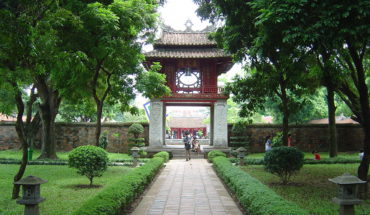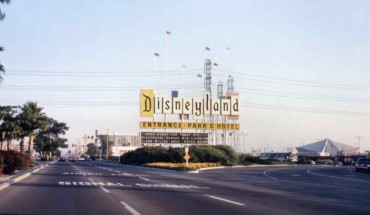
GoingAbroad.org is honoured to feature an interview with Andy Hill, the American director behind the Paradigm Water Project, an aid initiative designed to bring clean drinking water to families in the east Indonesian island of Lombok.
Currently raising funds for a Biosand water filter building operation, Andy is looking to spread the word about his quest and show others how they can help get involved via the Indiegogo campaign and website.
Q: Andy, thanks for talking with us and reaching out. Paradigm Water Project sounds like a really interesting endeavour. Where did the genesis for this idea come from and what is the intended outcome of the project?
I discovered Biosand water filters and the general issue of clean drinking water access when I was in Siem Reap. I met a couple guys on the bus from the Thai border who were there to check out the Trailblazer Foundation, and the next day we showed up and began helping out mixing concrete, and sifting and washing sand and gravel for the filters. From then, I have just been consumed by the necessity of these filters which are so simple to make, yet eliminate so many of the dangers of contaminated drinking water.
Q: Paradigm Water’s focus on Biosand filters is central to your campaign. Why are these so important to the region of Lombok? What is it like to work with locals there and help them better their lives?
The Biosand filters are a modern adaptation of the traditional slow sand filter, pioneered by a Canadian named David Manz (with the eminent organization Center for Affordable Water Sanitation and Treatment, or CAWST). They use no electricity, no moving parts, require scant maintenance, are affordable, and can be made virtually anywhere. Up to ten people can get all the purified drinking water they need for decades with these filters, which become permanent fixtures of the household or public area they are installed in.
They are really good at removing water borne pathogens that cause diareeah, typhus, and other diseases which are responsible for a ridiculous amount of sickness and death around the developing world. These diseases are also exceedingly common in Lombok. The problem is that drinking water sources (usually a well) are often contaminated with fecal matter, due to villagers going to the bathroom in fields or other unsanitary places. In the future we hope to be installing toilet blocks in villages with proper septic systems so that the source of this problem is also addressed.
In Lombok, there is near ubiquitous understanding of the nature of the problem, because everyone has been affected in some way by the diseases caused by these pathogens. Just last month, my friend’s nine year old son was in the hospital here in Kuta for five days with typhus. Not only is this life-threatening, but can completely sink any savings that a family has. Typhus is one of the primary diseases that the Biosand water filters remove from drinking water. So, garnering support for the project here on the ground has been effortless, from the village chiefs on down.
After we finish getting the rest of the equipment we need with our Indiegogo launch, we’ll approach local schools with educational literature in Indonesian language, and start building filters there so that kids will first understand how they work and how to use and take care of them. After that we will begin going through the villages and distributing them to households that are ready to begin using them.
Q: What has led to you living your life in this part of the world? What attracted you to Indonesia? Is this your first experience in crowd sourcing for local eco-project or have you wider experience in this field?
Ever since I was little I wanted to be in Asia, primarily Southeast Asia, and I have always felt perfectly at home and perpetually in awe of my surroundings while in the region. After several years in Cambodia, Thailand, Vietnam and Laos, my girlfriend and I moved to Indonesia, and just fell in love with it. It’s so massive, so fascinating culturally, artistically, historically, and it’s just a lovely place to inhabit.
The Paradigm Water Project is my first endeavor along these lines, and I am learning as I go along. To anyone reading- I need all the help I can get! But I am stoked to be involved in this project because it’s just ridiculous that anyone on this planet should have to drink dirty, literally shitty water. And, at the end of the day- it’s a fun activity.
Q: What advice would you give to other, similar-minded people looking to improve the lives of their community in other parts of the world based on your experiences thus far?
In most parts of the world, such as all over this region, there are amazing, small scale projects going on which you would never hear about until you show up and start poking around. They will always need people there to help. It is an engaging, fun, and often transformative experience to hang out and help out with people doing cool stuff in the developing world. If you see an opportunity to fix something, wherever you are on the planet, just dive in and go for it! It’s infinitely better to try and fail than to not try at all.
Q: Can you tell us more about your fundraising methods and goals? What challenges do you face raising the required $10,000 to make this happen?
We’ve got this Indiegogo campaign going for another month, and I am feverishly contacting everyone I can to try and spread the word about this project. I have dropped over 1,000 flyers in the past couple weeks on Singapore and Bali (I had to make a visa run) and am trying to utilize this whole social media business to also get the word out. We currently have 13 Twitter followers (not to brag) so I feel like its going really well. All sarcasm aside, I’m just trying an all-out blitzkrieg assault of awareness raising, and if there is anyone reading who is more media-savvy than I (most likely 99% of you) please get a hold of me and if you like, enlighten away. I sorely need it.
Q: Andy, you have wide experience living and travelling in Southeast Asia. What has it been like being part of this region for the last several years? What have been your highlights working and travelling across Indonesia, Cambodia, South Korea and more?
I’m a freak for history/culture/religion/anything foreign, so from that perspective it’s fascinating for me to be in this part of the world, which is so different from where I come from. Also, the pace of life is much more comfortable to me, the more relaxed feel of common things like buying a pack of cigarettes or getting credit for your cell phone- the way things work out here just makes sense to me. And people just seem more relaxed and friendly. There isn’t the kind of existential dread that I so often felt in the United States. But maybe that’s just me.
There have been so many amazing experiences travelling around Southeast Asia the past several years, but I would say that the most cherished for me would be the hospitality and warmth I have been so often shown by people in places like northern Laos, or Hanoi, or Phnom Penh. Seeing how we homo sapiens have innumerable, bizarre and fascinating ways of expressing our humanity, but that at the core, what we want and what we need are more or less universal fills me with an abiding and powerful love of humanity, and that experience is a high that compels me to keep finding it where I can.
Q: Any last words you’d like to leave our readers with concerning your goals with the Paradigm Water Project? Any words of encouragement for others looking to travel and make a positive change in the world?
Firstly, thank you Will for being supportive and doing this interview! To the readers, don’t hesitate to contact me with any advice/suggestions/tips/anecdotes/help/etc. We need all the help we can get, primarily just the spreading of the meme. If you’re in the area, do stop in and check out what we’re doing, and help us out if you can.
What I would ideally like to see with the Paradigm Water Project is that sustainable household water treatment takes off and that Biosand filters become standard issue in homes around this part of the world. We’re working village by village, but I think that after a critical mass of people realize how important these filters are, they will become as normal as motorbikes or cell phones in daily use. This also greatly reduces the use of plastic bottles, another major plus. We could also be working in other more remote and impoverished parts of Indonesia, such as the next island over from us, Sumbawa, for instance. There is a ton of work to do but thankfully it isn’t complicated or all that expensive. Let’s just see where we get with it, I say!
If you are travelling, snoop around and see what is going on in the city or village in which you are staying. There will most likely be some kind of cool initiative to get involved with that is small scale, local, and doesn’t cost any money or require any paperwork.
Above all- embrace the strange and (as Joseph Campbell said) follow your bliss.
Happy trails!


